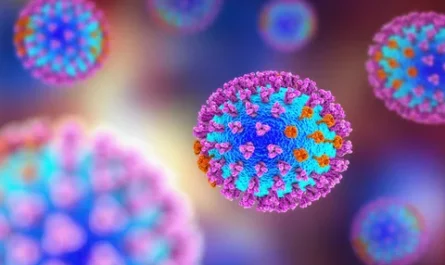Scientists at the Garvan Institute of Medical Research have discovered the epigenetic “signature” of a rare, hard-to-diagnose breast tumor. This breakthrough finding has the potential to enhance treatment guidelines and improve outcomes for patients with this uncommon condition.
Phyllodes tumors, which account for less than 1% of all breast tumors, can be challenging to diagnose due to their microscopic similarity to other types of breast tumors. While most phyllodes tumors are benign, approximately 10% are malignant. Accurate diagnosis is crucial for effective treatment as misdiagnosis can result in inappropriate or delayed interventions.
The conventional diagnostic method for tumors relies on the analysis of cellular patterns through pathology assessment. However, researchers at the Garvan Institute have discovered that new epigenetic-based DNA markers could provide additional information for diagnosis.
Epigenetic changes influence gene activity without altering the DNA sequence and can be influenced by environmental factors. One common epigenetic mechanism is DNA methylation, where molecules called methyl groups attach to parts of DNA, thereby altering gene expression.
Dr. Ruth Pidsley, co-senior author of the study and Leader of the DNA Methylation Biomarkers Group at Garvan, explains that the current approach to diagnosing phyllodes tumors involves examining their cellular features under a microscope. Unfortunately, this technique sometimes leads to misdiagnosis, as phyllodes tumors can resemble cellular fibroadenomas, sarcomas, or metaplastic breast cancer, which have distinct growth rates, prognoses, and treatment pathways. Dr. Pidsley states that their epigenetic approach, which examines DNA methylation patterns, adds a new layer of information to traditional pathology.
Analyzing samples from 33 patients, the researchers discovered that phyllodes tumors exhibit a unique DNA methylation pattern that distinguishes them from other cancers. Dr. Braydon Meyer, Research Officer in the Cancer Epigenetics Lab, adds that they also identified an additional methylation pattern that could differentiate malignant phyllodes tumors from benign cases. Additionally, they developed an algorithm capable of reclassifying initially misdiagnosed samples.
Associate Professor Clare Stirzaker, Leader of the Cancer Epigenetic Biomarker Group and co-first author, emphasizes that altered DNA methylation patterns have played a significant role in diagnosing other types of cancer. This illustrates the broader potential of epigenetic biomarkers in precision cancer diagnosis and personalized treatment.
Co-senior author Professor Sandra O’Toole, a senior pathologist at Garvan, explains that this new understanding could lead to improved diagnostics and outcomes. Accurate diagnosis means patients can receive the most appropriate treatment, increasing the chances of survival for those with aggressive tumors and avoiding unnecessary treatments for those with benign ones.
Professor Susan Clark, co-senior author and Head of the Cancer Epigenetics Lab at Garvan, notes that disruptions to epigenetic processes, such as DNA methylation patterns, are recognized as hallmarks of cancer and can vary significantly between cancer types, creating a unique cancer forensic signature.
Moving forward, the researchers plan to harness the power of cutting-edge epigenetic technologies, such as Digital Droplet PCR. Their next step involves developing a sensitive epigenetic-based PCR test to detect phyllodes tumors, which could be routinely employed in pathology laboratories.
*Note:
1. Source: Coherent Market Insights, Public sources, Desk research
2. We have leveraged AI tools to mine information and compile it


